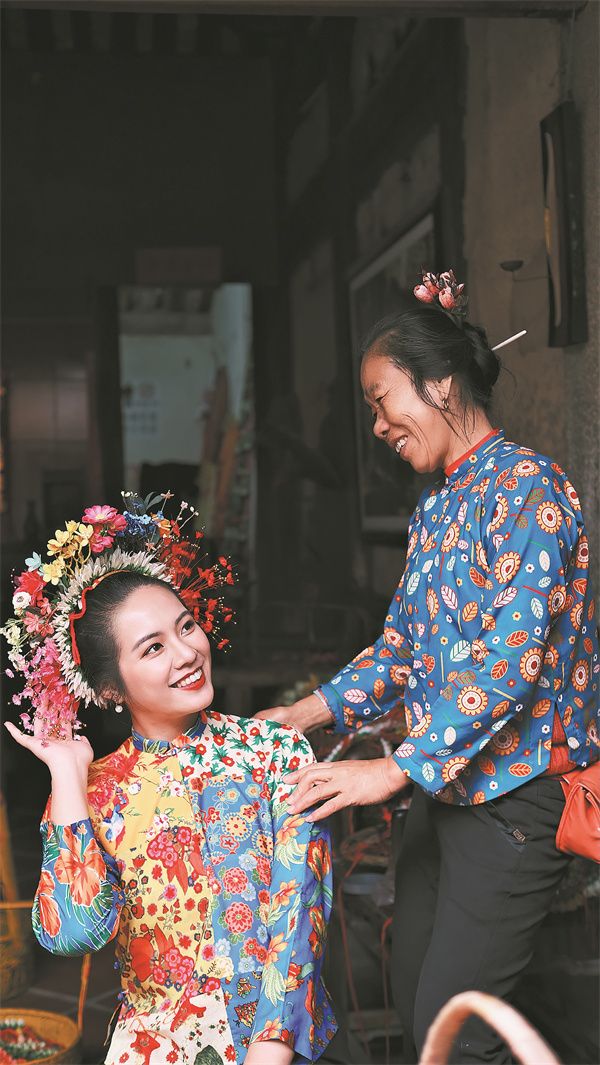source: editor:Zhang Wenni

Weng Xiuzhen (right) puts flowers on Yin Siqi's bun in Xunpu, Fujian province. [CHINA DAILY]
As a child, Huang Rongbing used to watch his mother glide a wooden comb through her long, thick hair, which was as black as calligrapher's ink.
"That was the first thing she did every morning before washing her face and brushing her teeth. She usually put some hair oil on her comb, making her long hair smooth and neat. Her hair was very long, about knee length. She often pulled her hair back tight, rolled it around two fingers and formed a bun on the back of her head," recalled Huang, 34. "Then she would put colorful flowers on her head as accessories, which was very beautiful."
All the women in the small fishing village of Xunpu in Quanzhou, Fujian province, where Huang was born and grew up, had long hair like his mother tied in a bun and adorned with flowers. The colorful and distinctive floral headdress is known as zanhua or zanhuawei.
There is an old saying in Xunpu, "put flowers in your hair in this life and you'll also be pretty in the afterlife".
The head ornament has become an inspiration and provided a career for Huang.
In 2016, he and his older sister opened a salon called Xunpu Huami where tourists could have their hair done in zanhua style and get their photos taken.
With over 100 customers a day, Huang eventually turned the salon into a cultural center, which gave female visitors the opportunity to put on the traditional clothes worn by local women to introduce them to the village's culture.
Xunpu is located about 10 kilometers southeast of the city center of Quanzhou — one of the most important ports of the ancient Maritime Silk Road, which was added to UNESCO's World Heritage List in 2021. In the past, many oceangoing vessels anchored in Xunpu to transport silk, tea and porcelain to countries and regions around the globe, according to the Quanzhou government's official website.